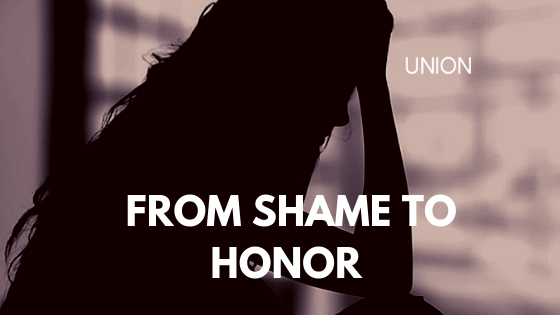From Shame to Honor
Fifth Haftarah of Comfort, Isaiah 54:1–10
Rabbi Stuart Dauermann
Our Haftarah speaks in strident terms of two realities with which all societies and all people must deal: honor and shame.
“Sing, barren woman who has never had a child!
Burst into song, shout for joy,
you who have never been in labor!
For the deserted wife will have more children
than the woman who is living with her husband,” says Adonai. . . .
Don’t be afraid, for you won’t be ashamed;
don’t be discouraged, for you won’t be disgraced.
You will forget the shame of your youth,
no longer remember the dishonor of being widowed.
For your husband is your Maker,
Adonai-Tzva’ot is his name.
The Holy One of Isra’el is your Redeemer.
He will be called the God of all the earth.
For Adonai has called you back
like a wife abandoned and grief-stricken;
“A wife married in her youth
cannot be rejected,” says your God.
“Briefly I abandoned you,
but with great compassion I am taking you back.
I was angry for a moment
and hid my face from you;
but with everlasting grace
I will have compassion on you,”
says Adonai your Redeemer. (Isaiah 54:1, 4–8)
The very first verse of this haftarah presents the kingdom and people of Judah metaphorically as a woman who is shamed because she has never been in labor and is therefore without children, also shamed because she has been forsaken by her husband, (actually widowed). Then, in the verses following, this woman’s status is reversed as she has many children and as her Maker, Adonai, becomes her husband.
In some segments of our culture, this issue of shame for being childless or for being unmarried is still a stigma for women. We would all agree that this is unjust and unkind. I have also long noted that in our culture a man can afford to look sloppy. This will just be written off. But for a woman to appear in public in a sloppy manner is for her to court disapproval, and even conjectures about her emotional well-being. And if a woman is unattractive, she is apt to consider herself permanently one down. This is unjust, and it is cruel. To the extent that such “norms” prevail in our contexts, they need to be forsaken and uprooted.
Although I have neither attached to myself the label “feminist” nor opposed being such, I think all men and indeed all people should join in making sure that women are treated with the dignity and honor God intends for them. This is a kind of feminism none should reject and all should embrace.
Matters of honor and shame are currently being trampled underfoot in American culture. In the public arena, few if any bother to think about how they are enhancing or destroying the reputations and well-being of the people they despise, oppose, and denounce. I know people who engage in this practice every day on their Facebook pages, denouncing entire classes of people.
We have seen in our Haftarah that matters of honor and shame are important to God. In the Besorah of Luke we find Yeshua talking about this issue too (see Luke 14:7–11). In the Sermon on the Mount, Yeshua sternly warns us, “I tell you that anyone who nurses anger against his brother will be subject to judgment; that whoever calls his brother, ‘You good-for-nothing!’ will be brought before the Sanhedrin; that whoever says, ‘Fool!’ incurs the penalty of burning in the fire of Gei-Hinnom!” (Matthew 5:22).
In view of all this then, consider the following:
1. What ought to be done transform the way people in our circles speak to and about others?
2. If we don’t bother to address this, do we imagine this will be pleasing to ADONAI?
3. How do you think society will be impacted if we do not reverse this trend of widespread disrespectful speech?
4. If you were going to write a speech ethic for American political discourse, what would it say? Begin this way: “It is our decision that henceforth, when speaking of those of whom we disapprove, or with whom we disagree, we will not ________________________________________________ but instead will endeavor to __________________________________. In this manner we seek to reduce ____________________and increase _______________ in our nation.”
It is easy for us to speak in generalized terms about dignity for all people. But people are not generalities: they are very specific. Therefore, it behooves us to think clearly about the various groups of people we encounter: not society in general, but subgroups of people as they are distinguished from each other by economics, location, gender, race, politics, ethnicity, religion, and other particularities of their station in life. It may just be—and I would insist it is—that the God of Israel holds us accountable to treat all these kinds of people with the honor and dignity for which they were created. And who would doubt that care in such matters is a vanishing commodity in our day?
We would do well to ponder the wisdom and challenge given us by Kefa in his first letter, “Be respectful to all—keep loving the brotherhood, fearing God, and honoring the emperor” (1 Peter 2:17). Few would doubt that our society is not doing well in these areas. No excuse is good enough to justify leaving things as they are. We have to do better.

